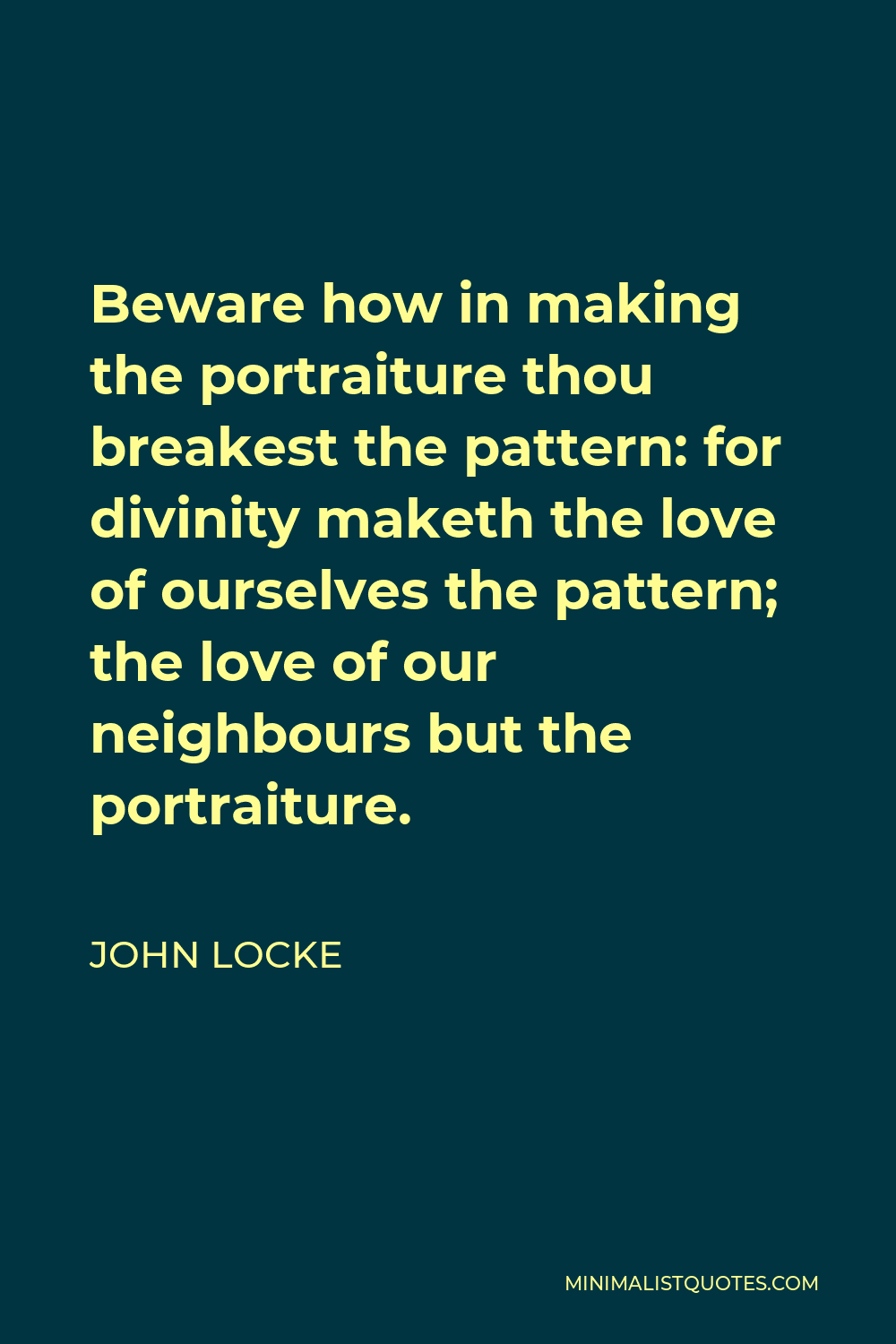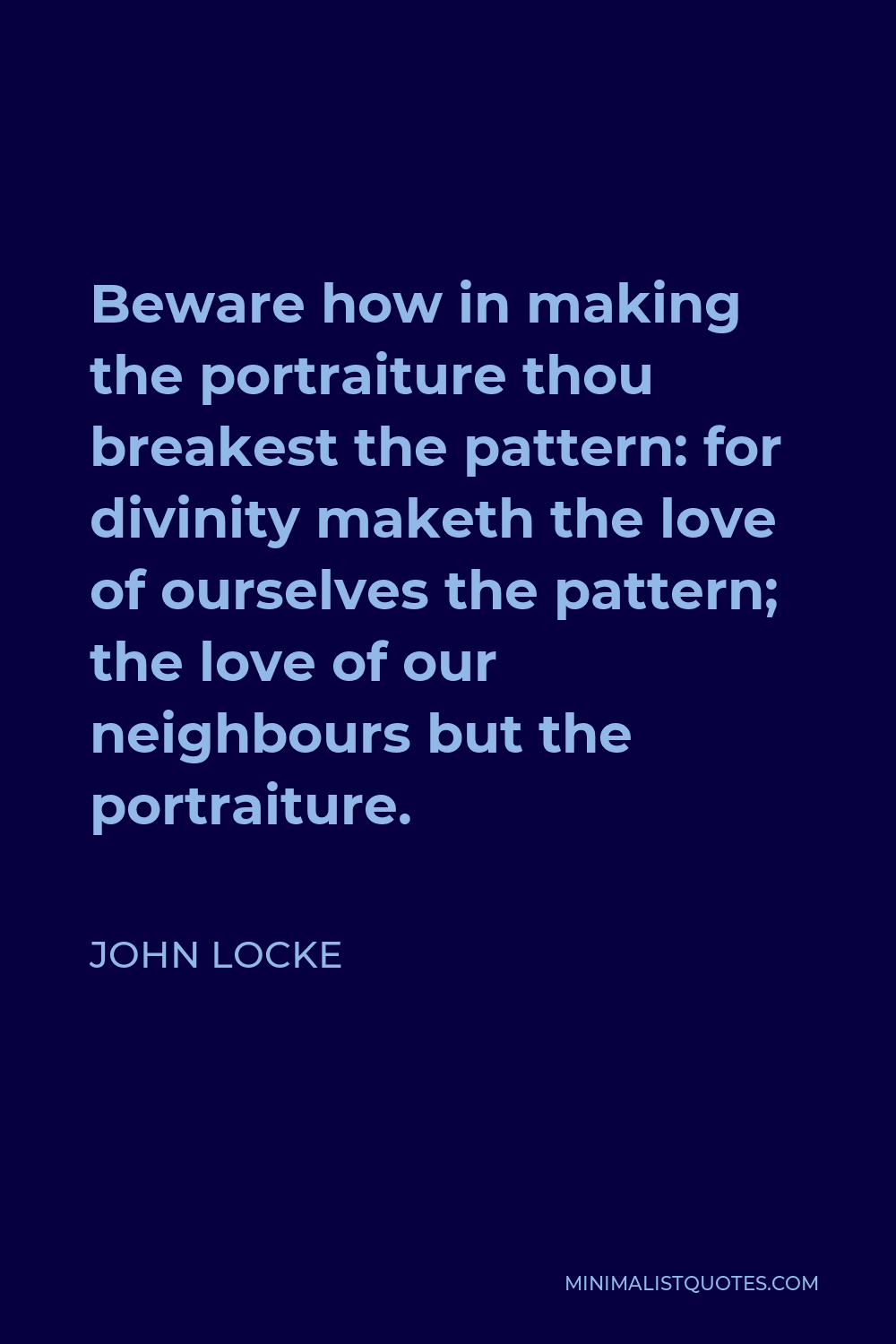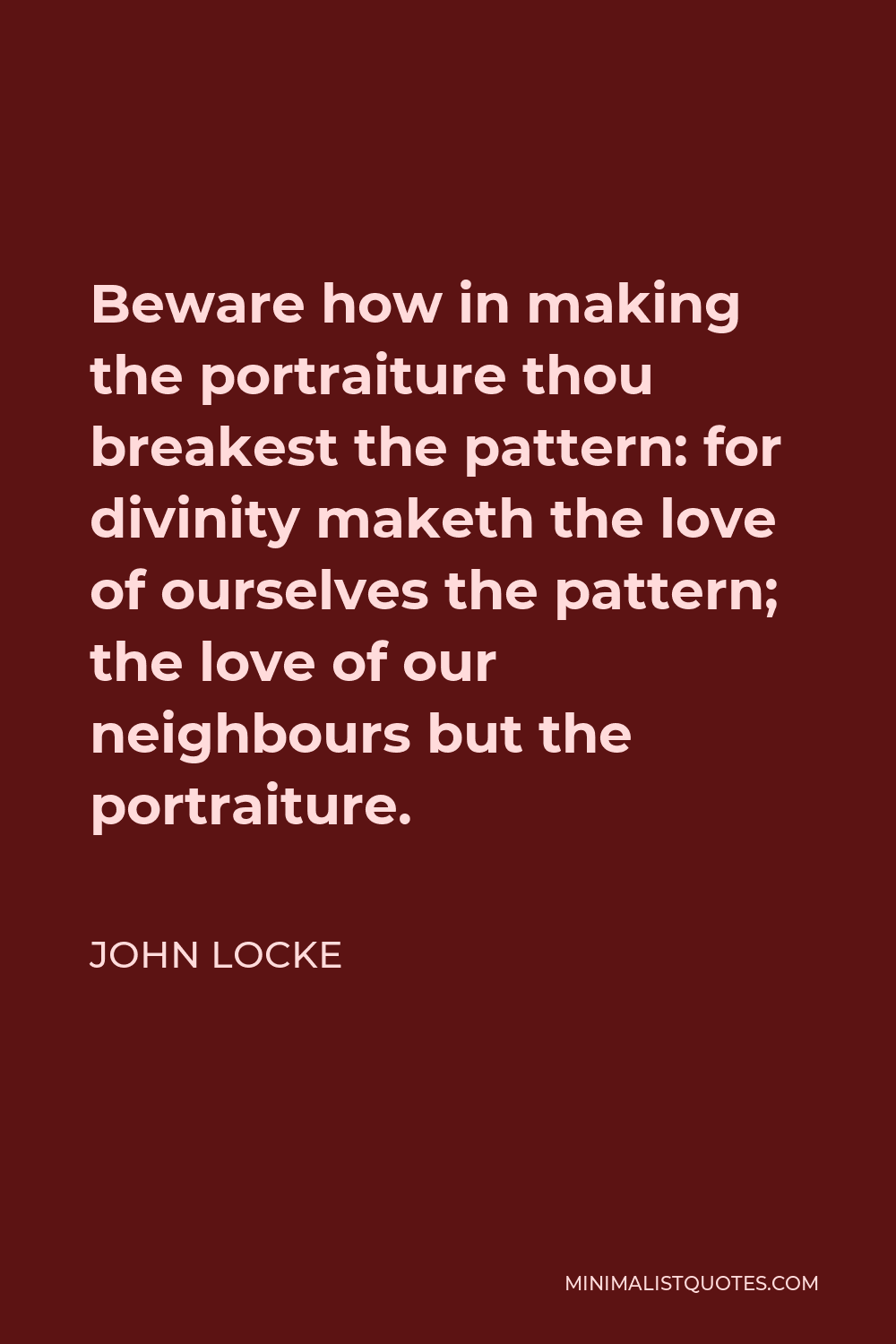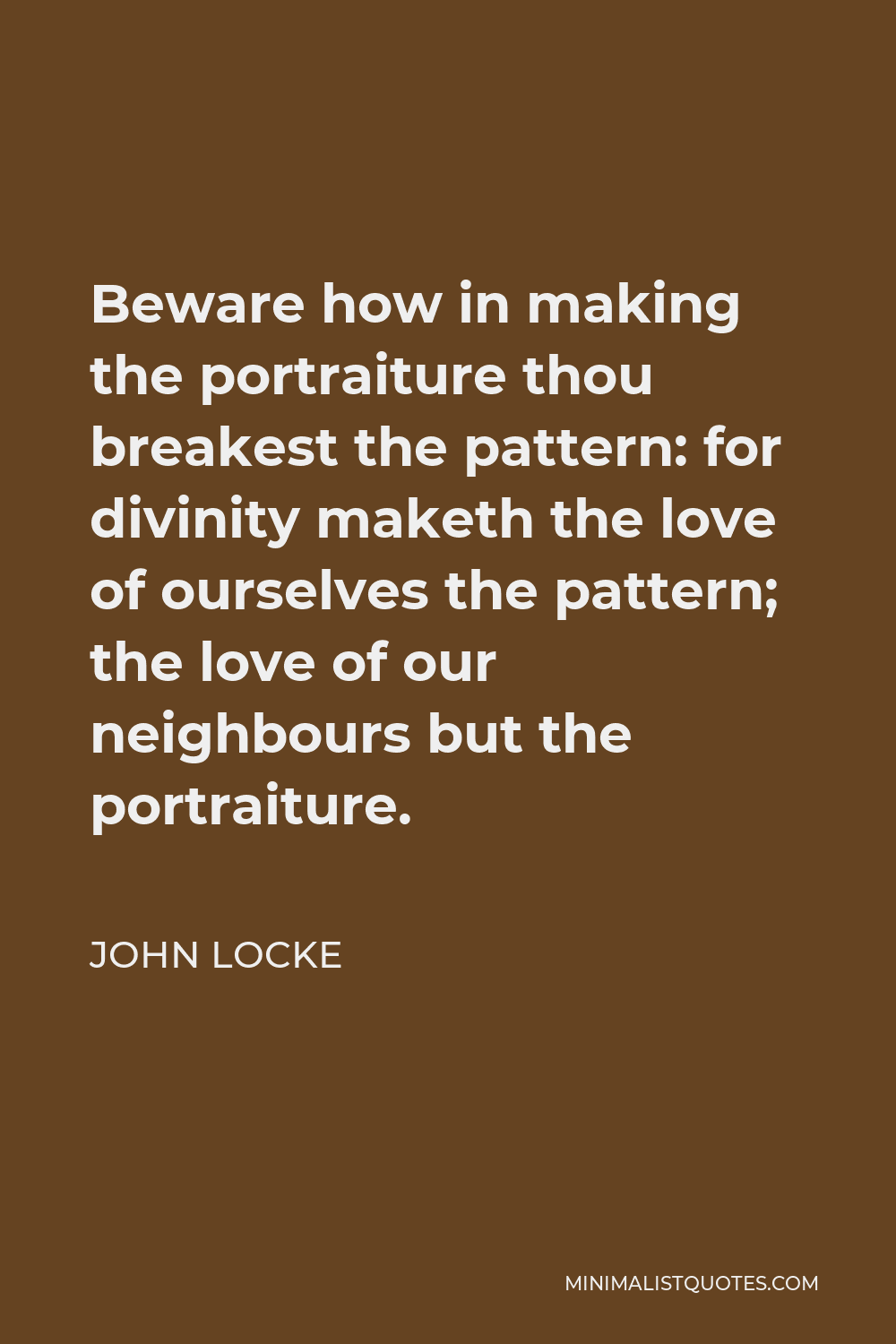He that will make good use of any part of his life must allow a large part of it to recreation.
JOHN LOCKEBeware how in making the portraiture thou breakest the pattern: for divinity maketh the love of ourselves the pattern; the love of our neighbours but the portraiture.
More John Locke Quotes
-





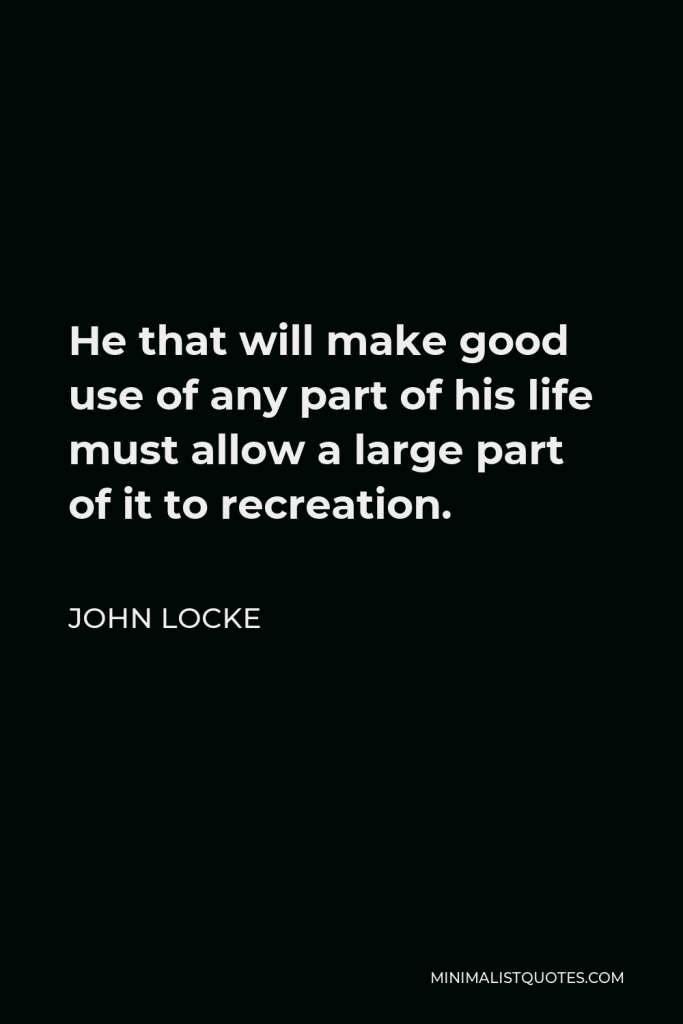

-





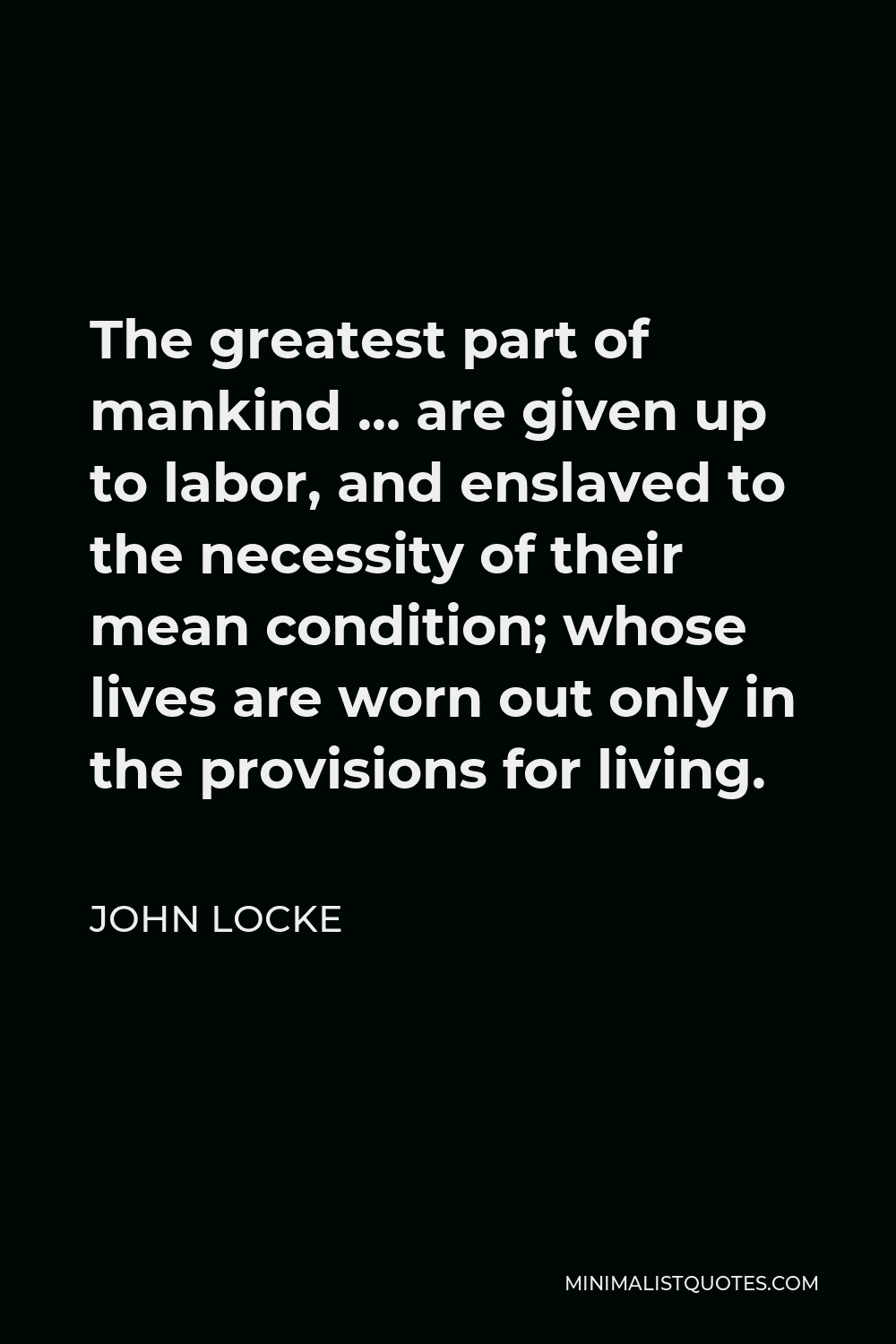
The greatest part of mankind … are given up to labor, and enslaved to the necessity of their mean condition; whose lives are worn out only in the provisions for living.
JOHN LOCKE -






That which parents should take care of… is to distinguish between the wants of fancy, and those of nature.
JOHN LOCKE -





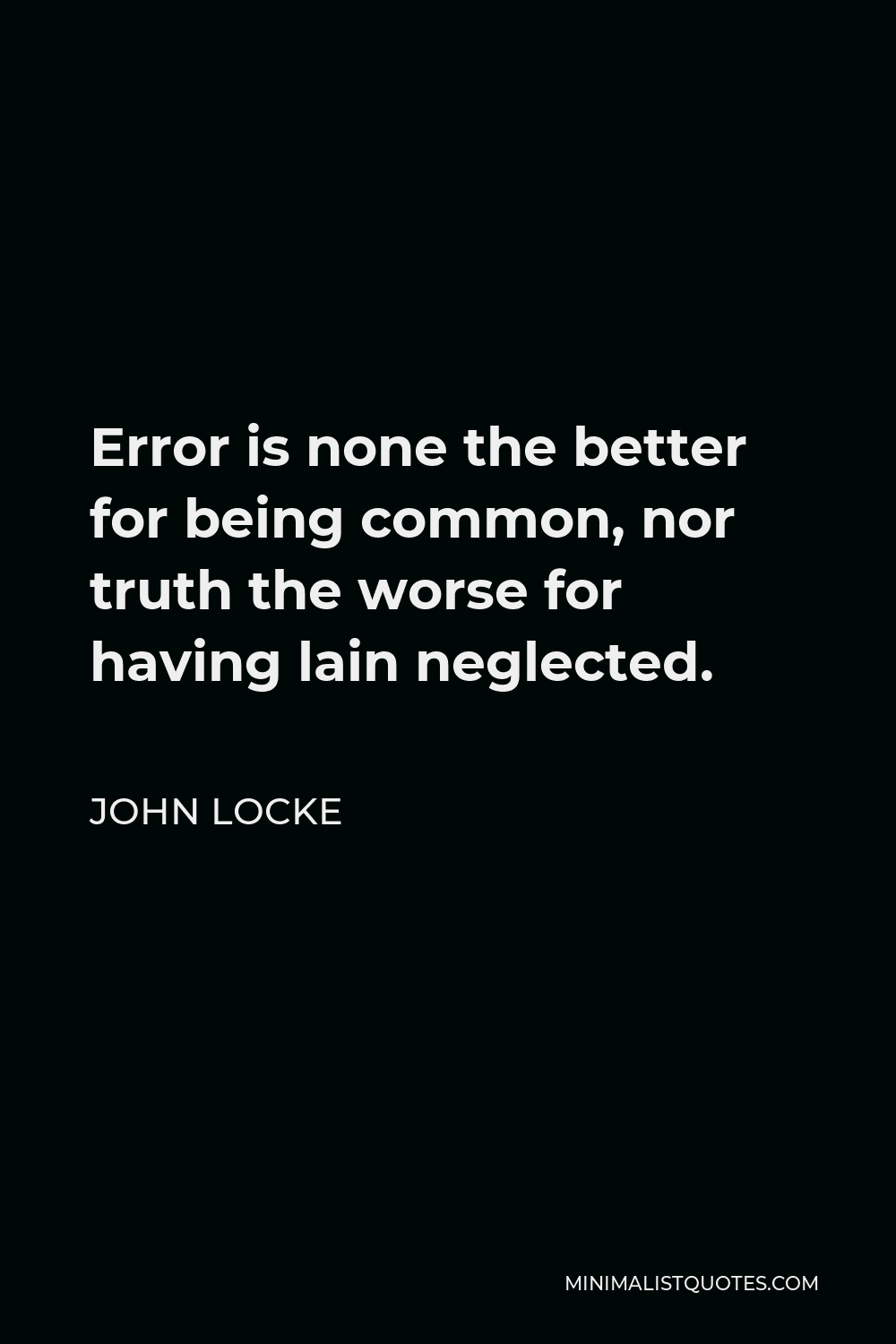
Error is none the better for being common, nor truth the worse for having lain neglected.
JOHN LOCKE -





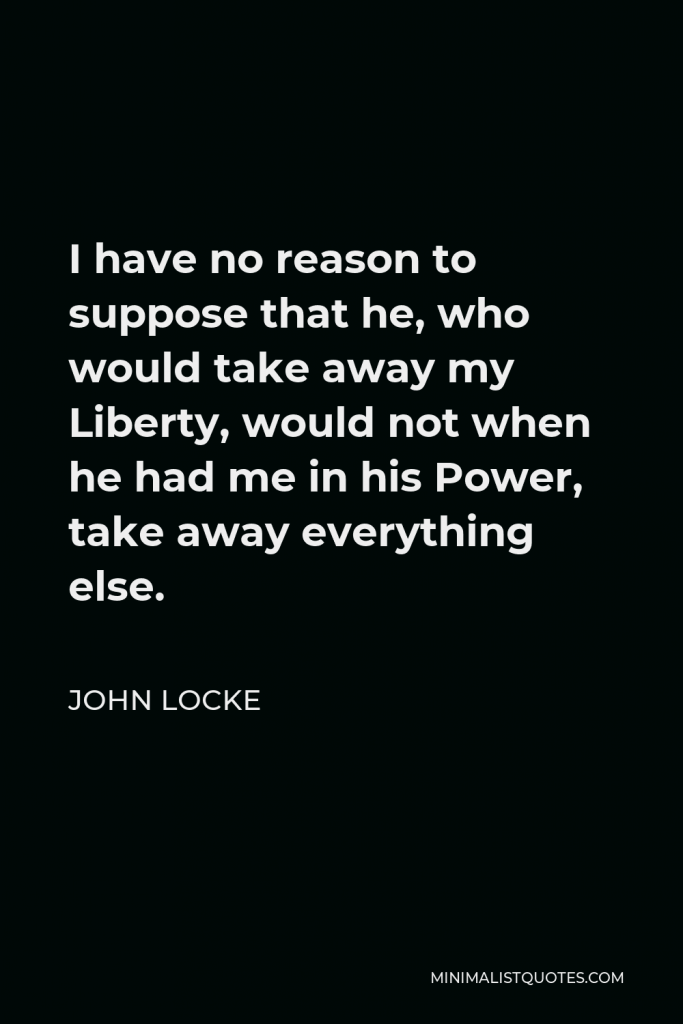

I have no reason to suppose that he, who would take away my Liberty, would not when he had me in his Power, take away everything else.
JOHN LOCKE -





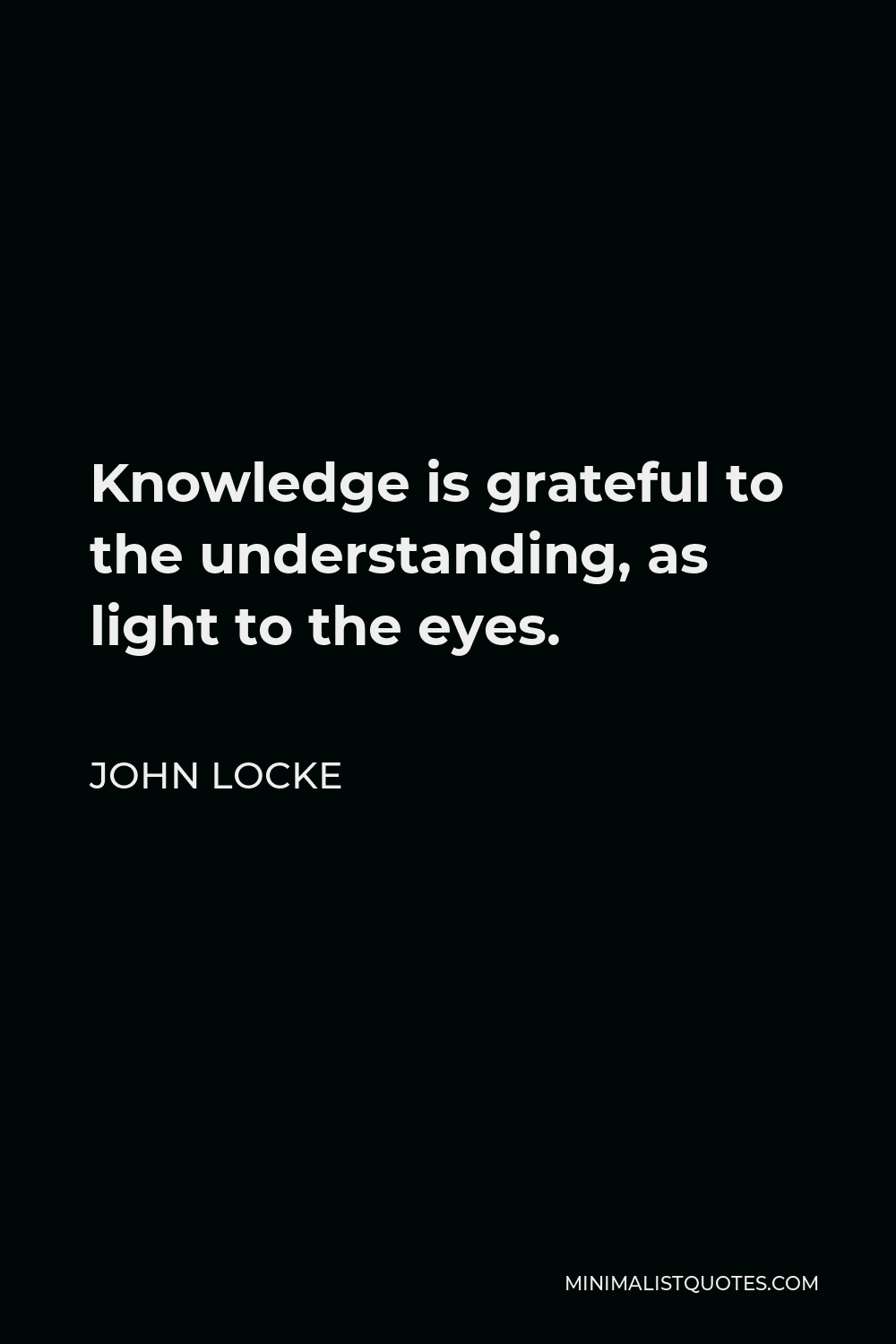
Knowledge is grateful to the understanding, as light to the eyes.
JOHN LOCKE -






Tis true that governments cannot be supported without great charge, and it is fit everyone who enjoys a share of protection should pay out of his estate his proportion of the maintenance of it.
JOHN LOCKE -





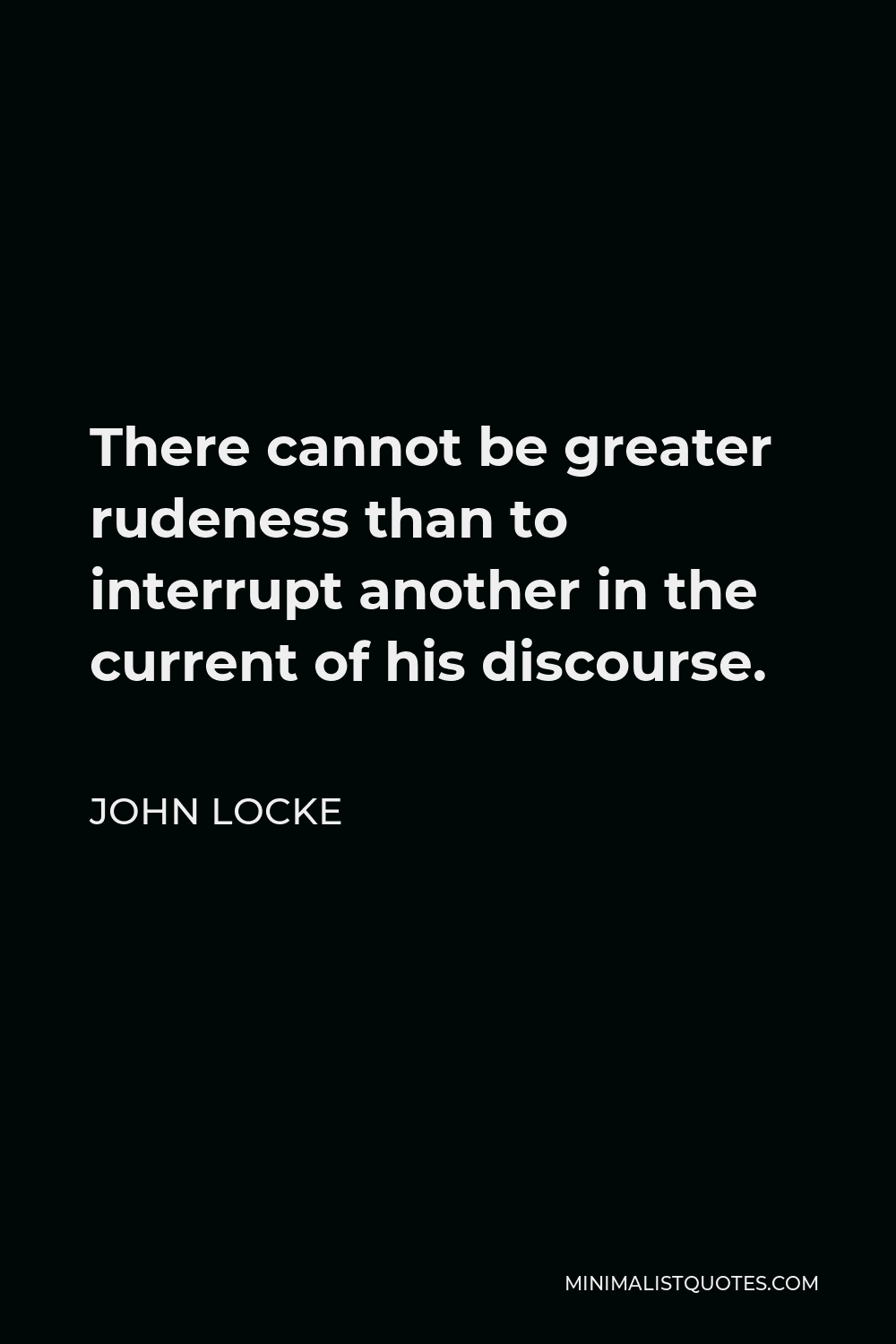
There cannot be greater rudeness than to interrupt another in the current of his discourse.
JOHN LOCKE -





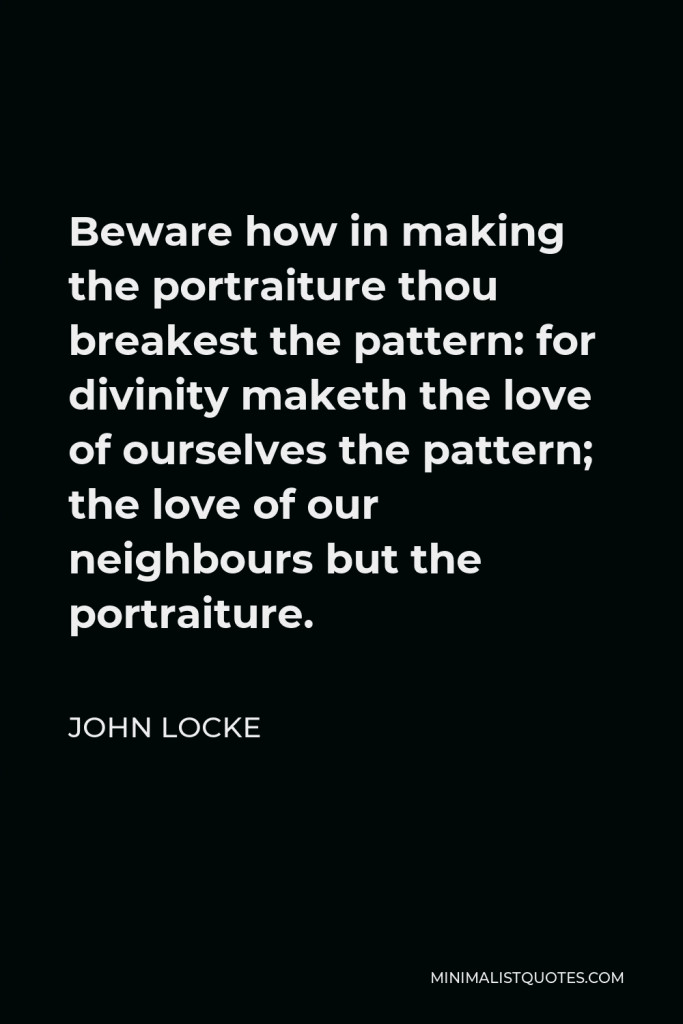

Beware how in making the portraiture thou breakest the pattern: for divinity maketh the love of ourselves the pattern; the love of our neighbours but the portraiture.
JOHN LOCKE -





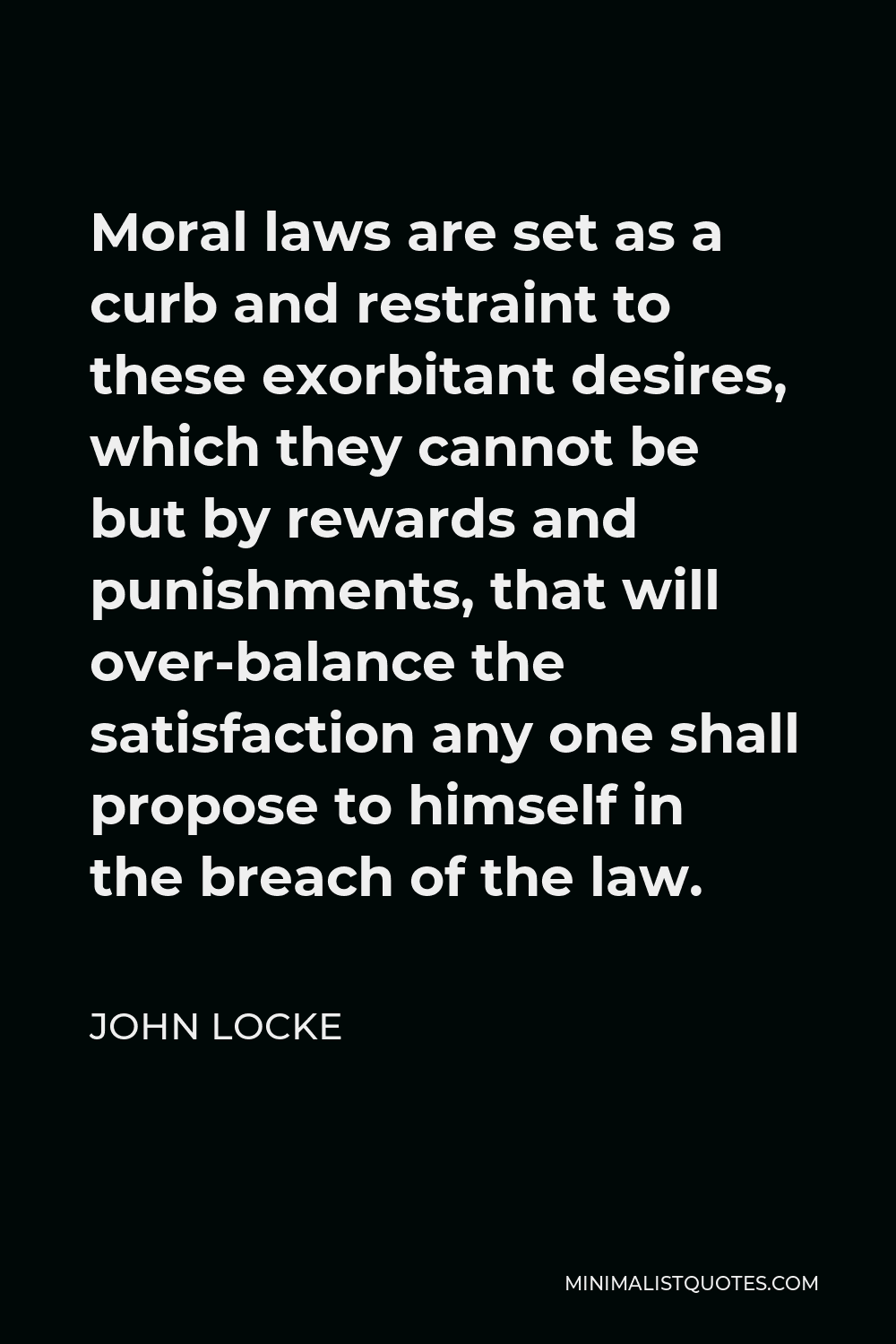
Moral laws are set as a curb and restraint to these exorbitant desires, which they cannot be but by rewards and punishments, that will over-balance the satisfaction any one shall propose to himself in the breach of the law.
JOHN LOCKE -





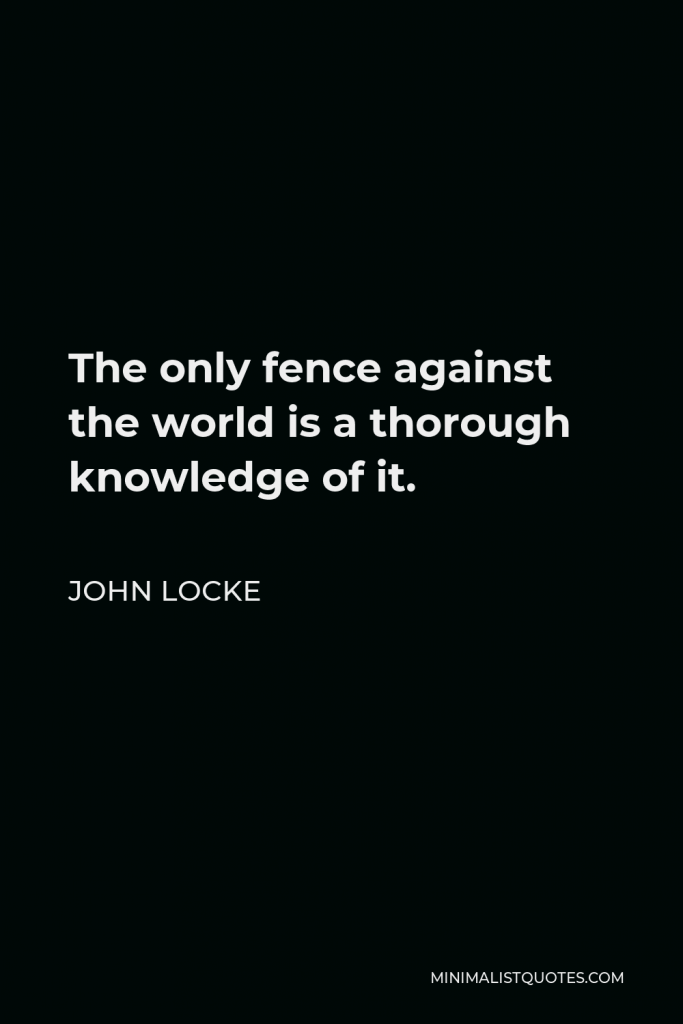

The only fence against the world is a thorough knowledge of it.
JOHN LOCKE -






There are a thousand ways to Wealth, but only one way to Heaven.
JOHN LOCKE -





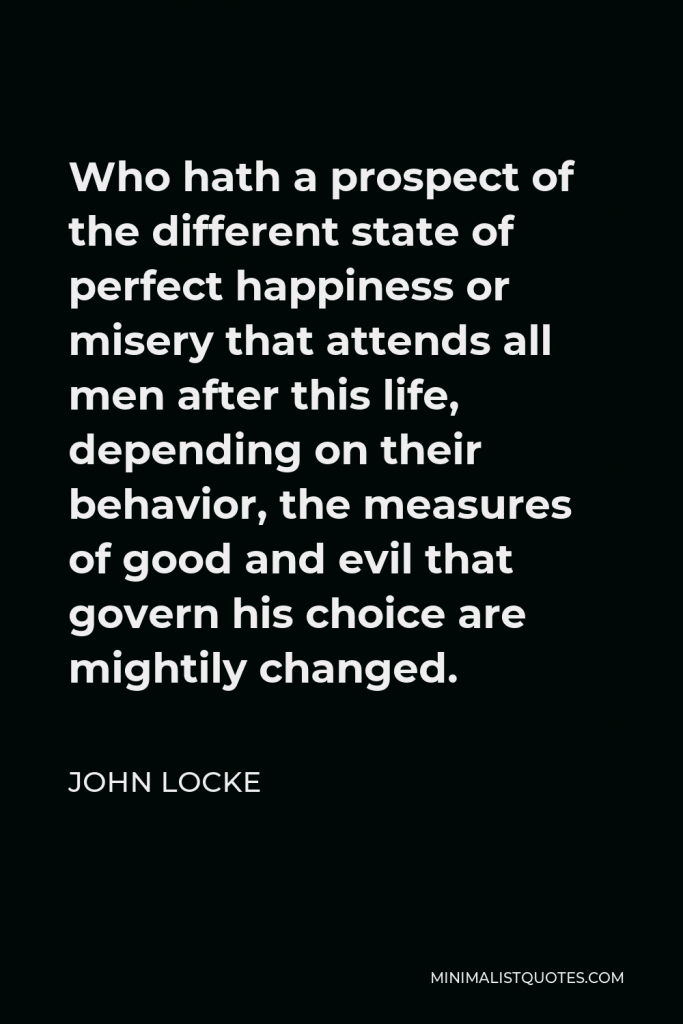

Who hath a prospect of the different state of perfect happiness or misery that attends all men after this life, depending on their behavior, the measures of good and evil that govern his choice are mightily changed.
JOHN LOCKE -





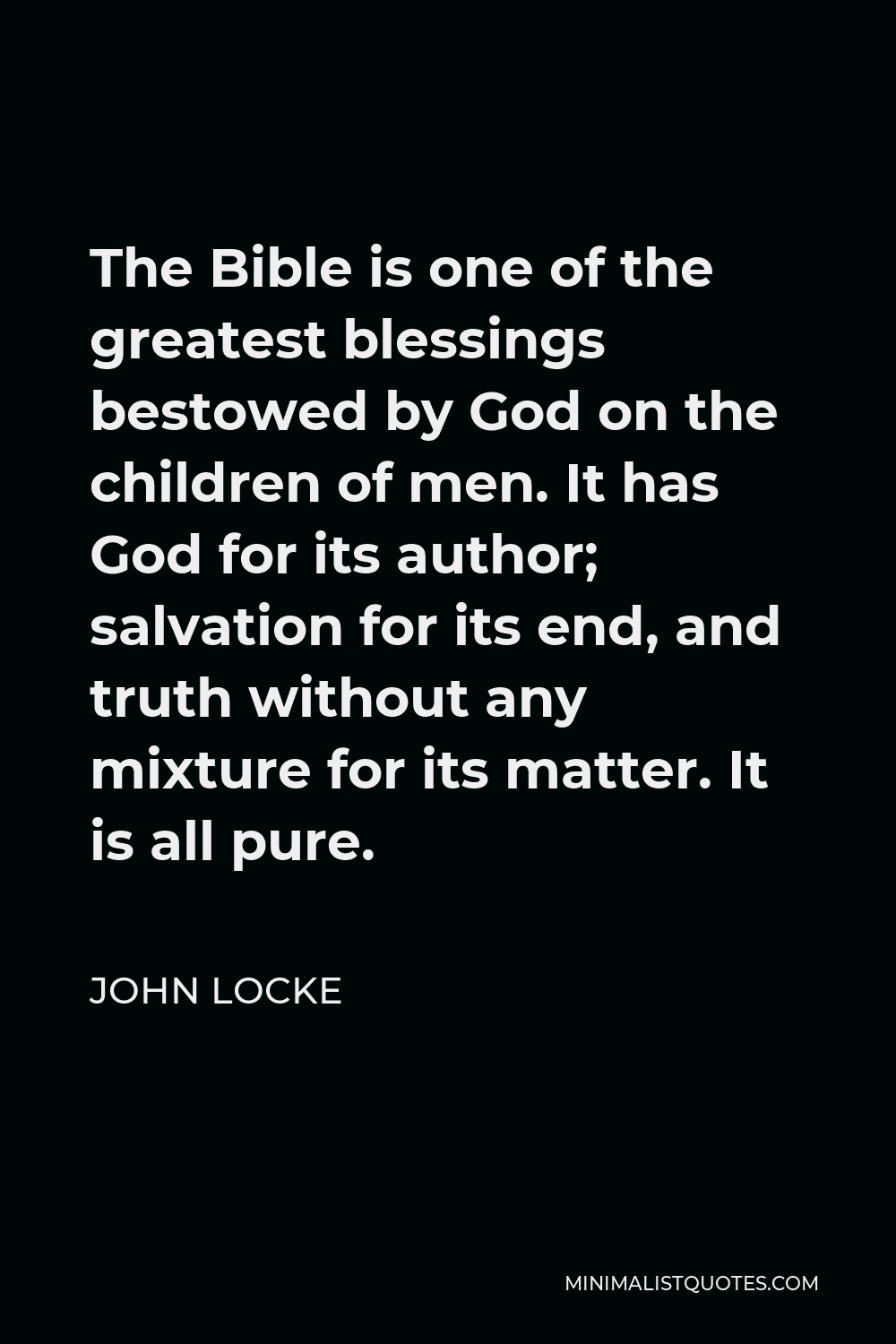
The Bible is one of the greatest blessings bestowed by God on the children of men. It has God for its author; salvation for its end, and truth without any mixture for its matter. It is all pure.
JOHN LOCKE -






How long have you been holding those words in your head, hoping to use them?
JOHN LOCKE -





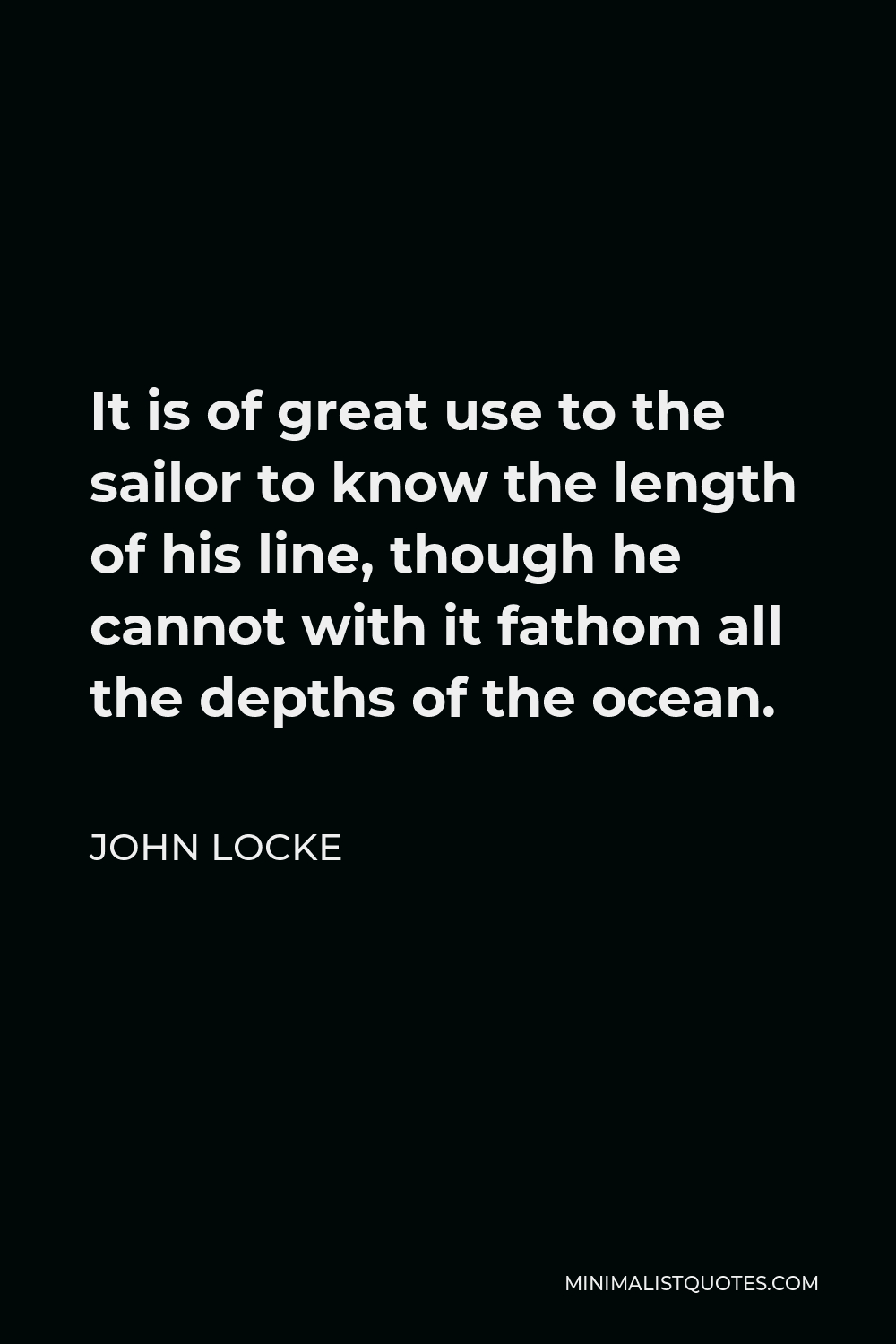
It is of great use to the sailor to know the length of his line, though he cannot with it fathom all the depths of the ocean.
JOHN LOCKE -






If all be a Dream, then he doth but dream that he makes the Question; and so it is not much matter that a waking Man should answer him.
JOHN LOCKE -







Fortitude is the guard and support of the other virtues.
JOHN LOCKE -







A criminal who, having renounced reason … hath, by the unjust violence and slaughter he hath committed upon one, declared war against all mankind, and therefore may be destroyed as a lion or tiger, one of those wild savage beasts with whom men can have no society nor security.
JOHN LOCKE -







No peace and security among mankind-let alone common friendship-can ever exist as long as people think that governments get their authority from God and that religion is to be propagated by force of arms.
JOHN LOCKE -





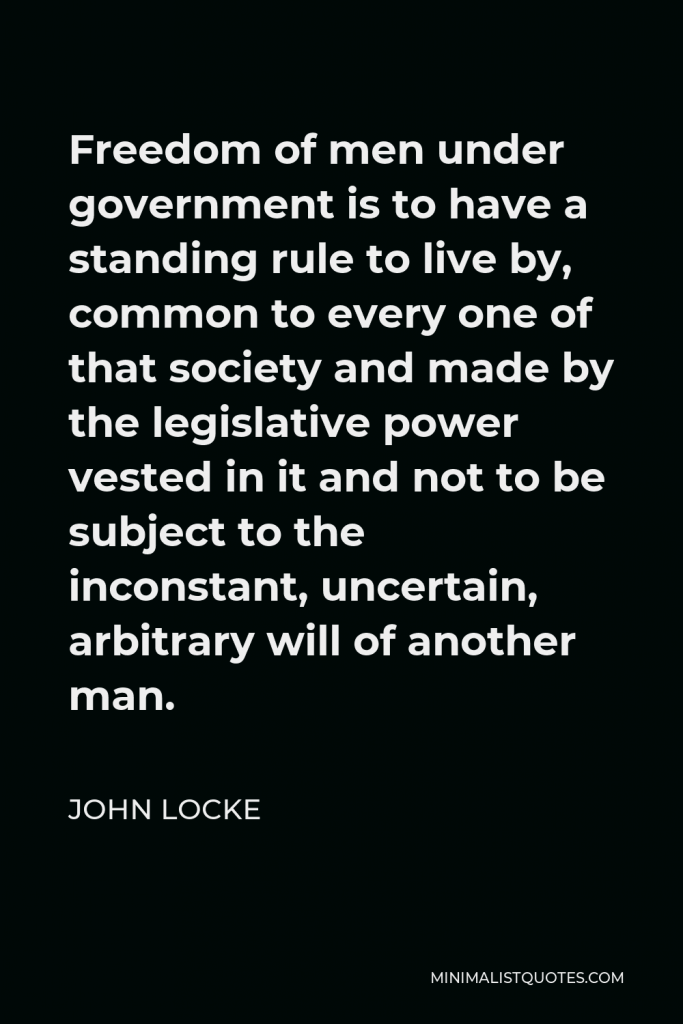

Freedom of men under government is to have a standing rule to live by, common to every one of that society and made by the legislative power vested in it and not to be subject to the inconstant, uncertain, arbitrary will of another man.
JOHN LOCKE -





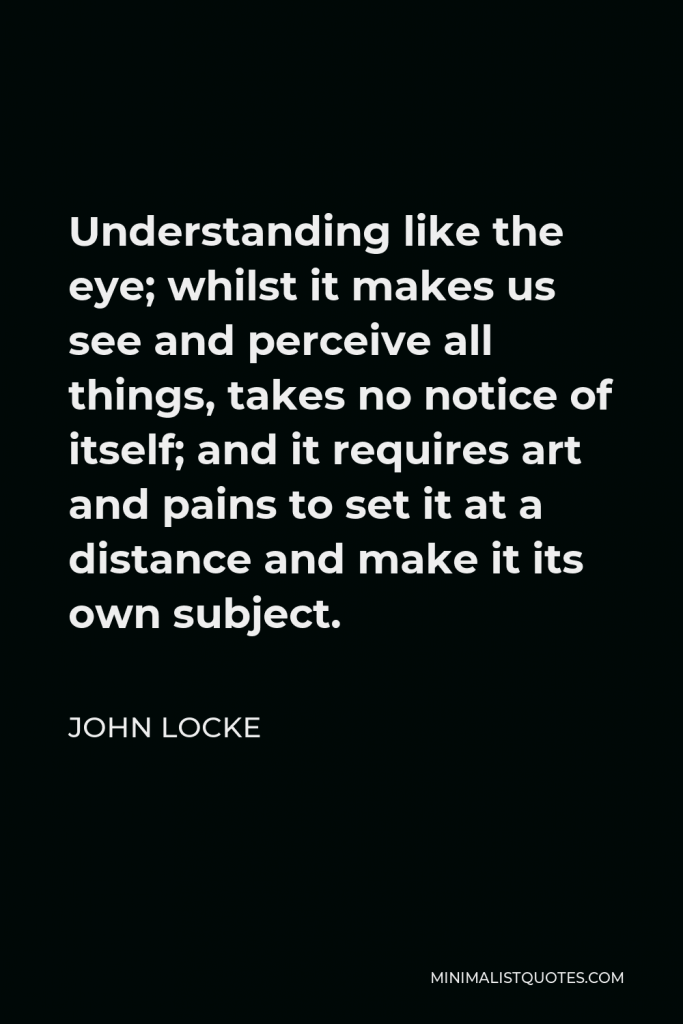

Understanding like the eye; whilst it makes us see and perceive all things, takes no notice of itself; and it requires art and pains to set it at a distance and make it its own subject.
JOHN LOCKE -





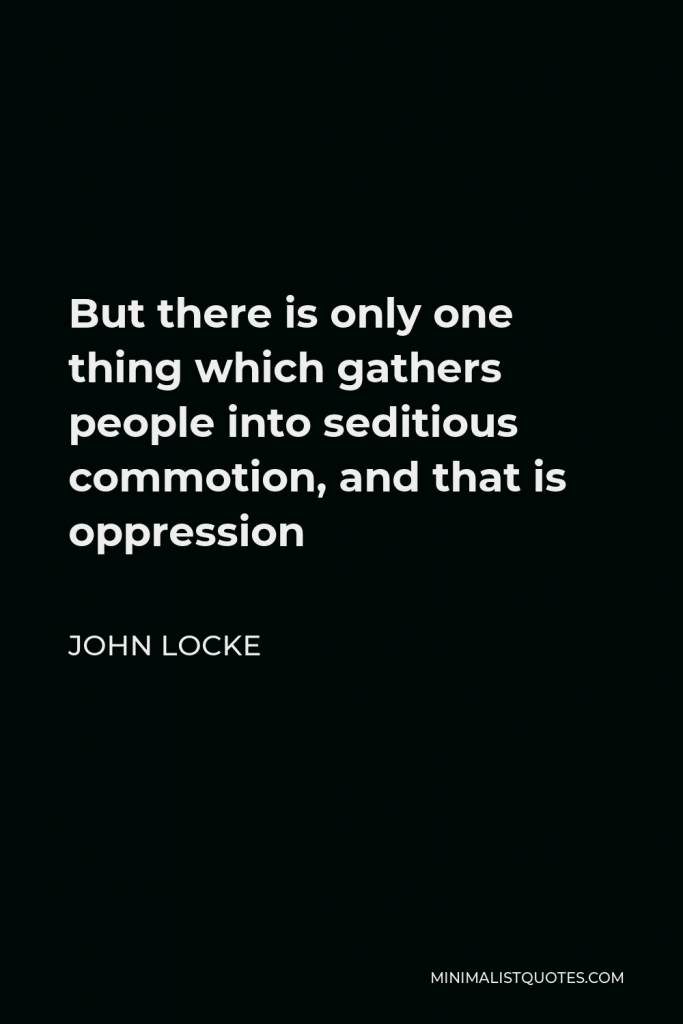

But there is only one thing which gathers people into seditious commotion, and that is oppression
JOHN LOCKE -





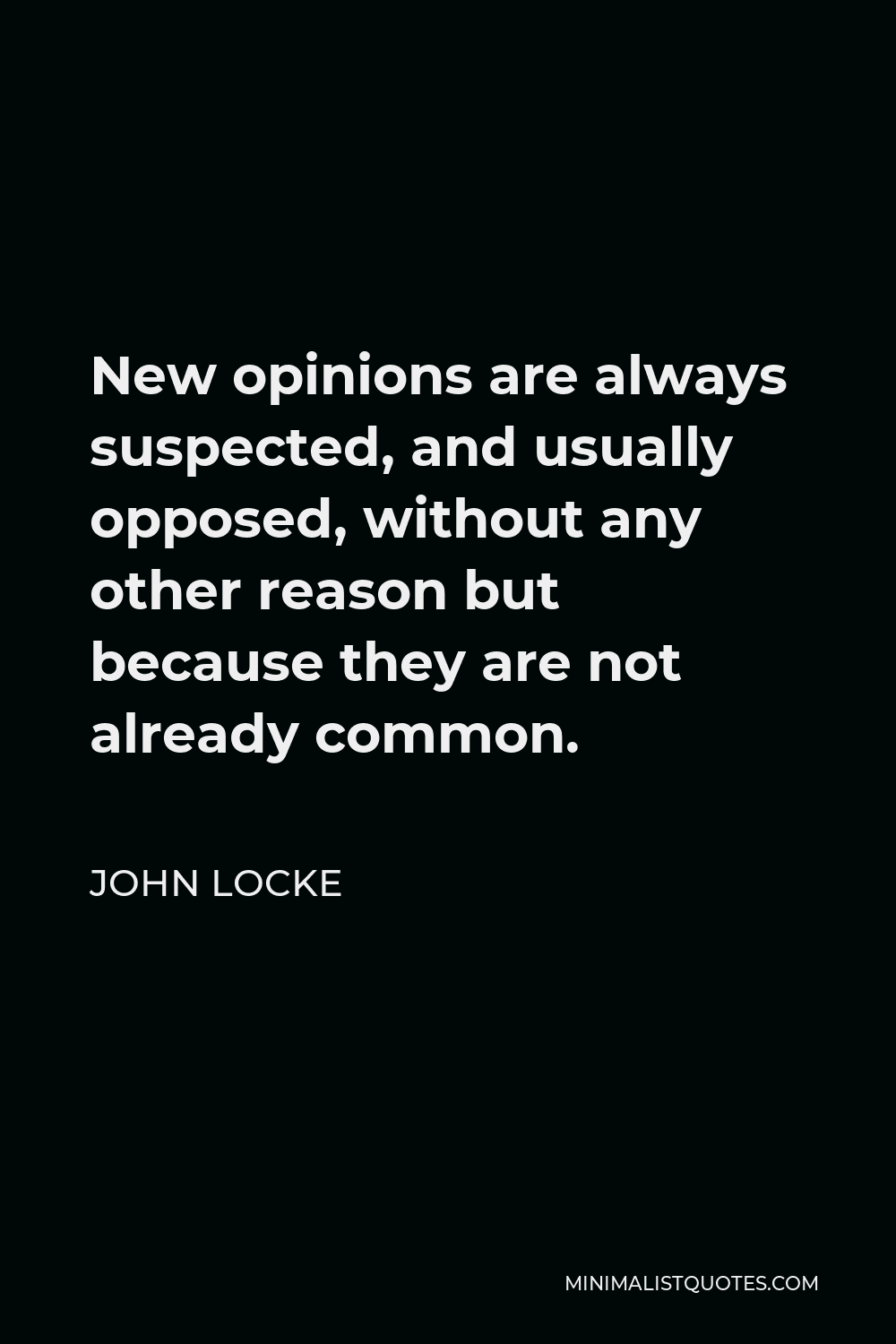
New opinions are always suspected, and usually opposed, without any other reason but because they are not already common.
JOHN LOCKE -





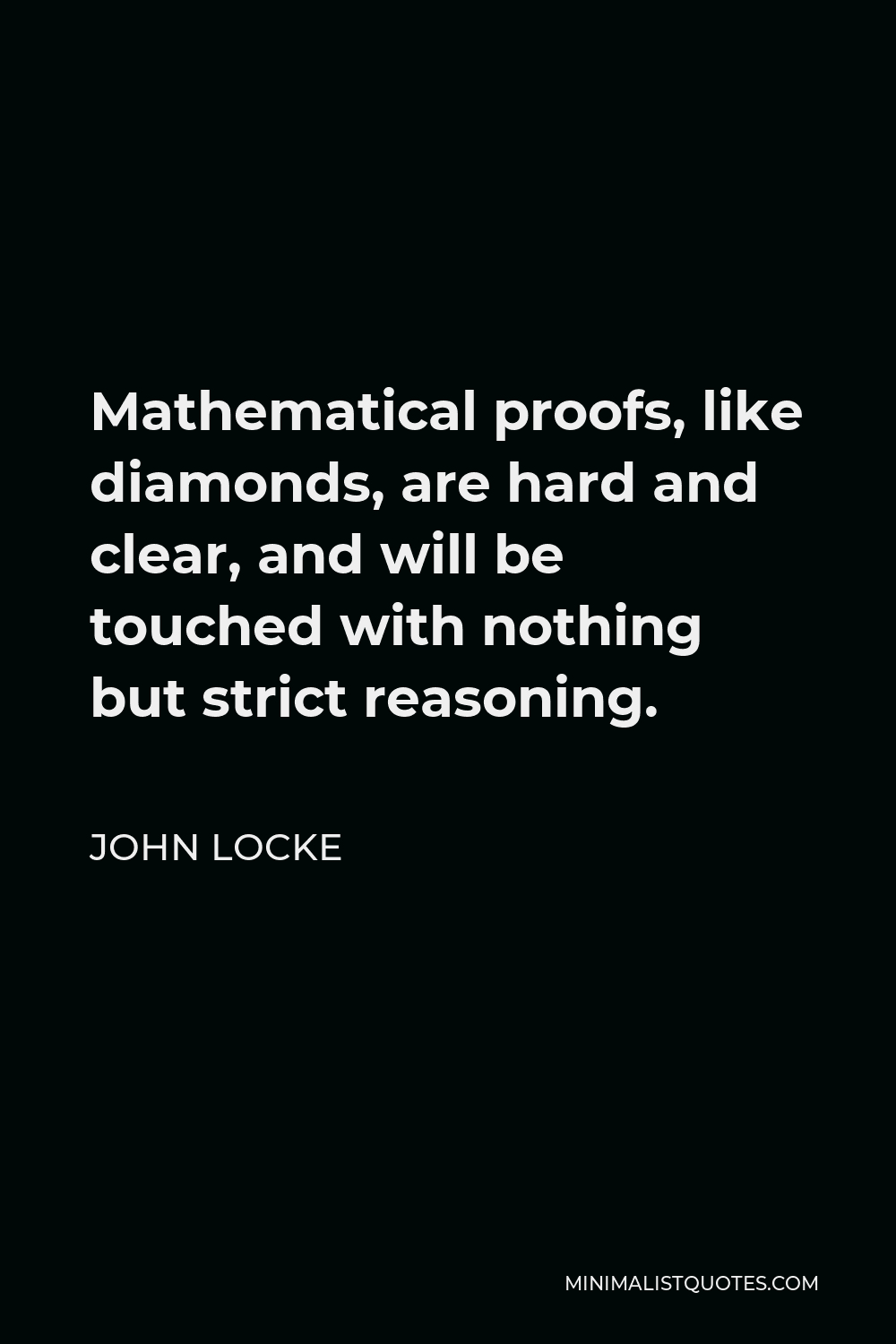
Mathematical proofs, like diamonds, are hard and clear, and will be touched with nothing but strict reasoning.
JOHN LOCKE -





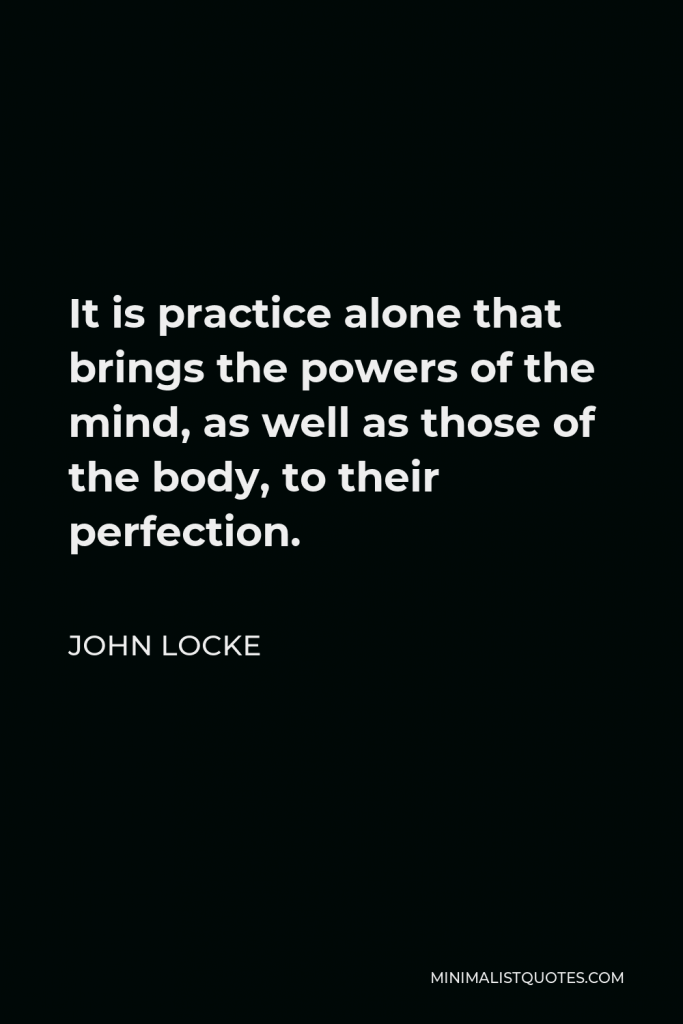

It is practice alone that brings the powers of the mind, as well as those of the body, to their perfection.
JOHN LOCKE -





![John Locke Quote - [Individuals] have a right to defend themselves and recover by force what by unlawful force is taken from them.](https://minimalistquotes.com/wp-content/uploads/2023/03/individuals-have-a-right-to-defend-themselves-and--683x1024.jpg)

[Individuals] have a right to defend themselves and recover by force what by unlawful force is taken from them.
JOHN LOCKE

